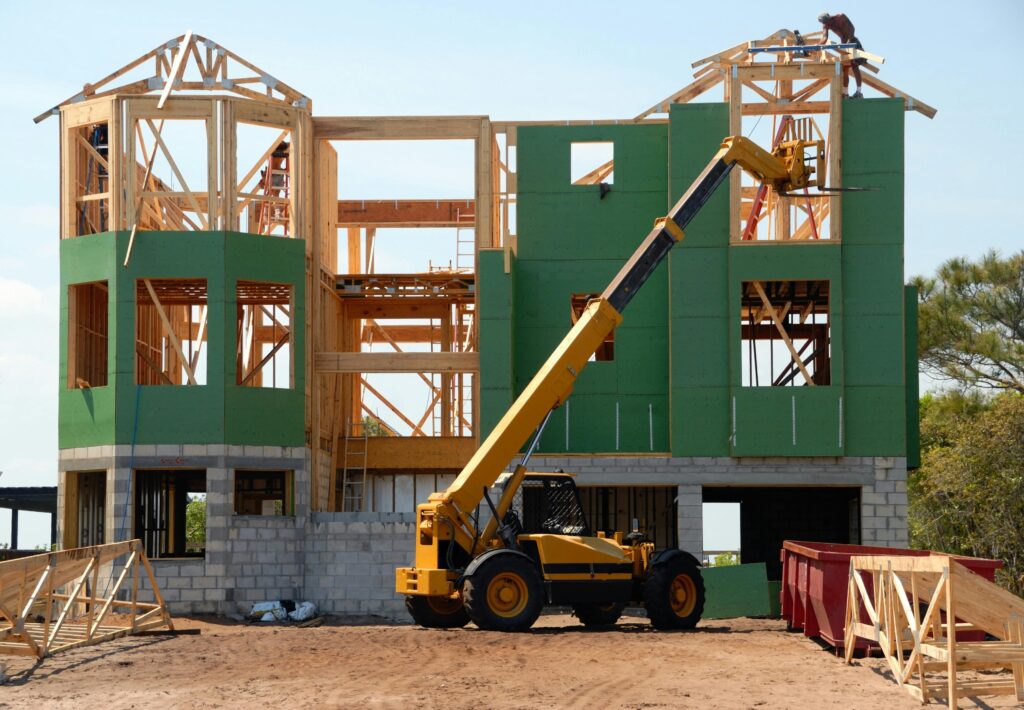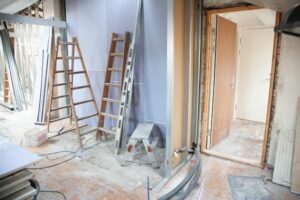
Constructing a new home is a fascinating process that involves not only the design consideration but also the functionality of the house. It is a chance to design a home that meets your desires and requirements. However, embarking on this journey necessitates a thorough understanding of several critical topics. A successful outcome depends on a number of crucial factors, from choosing the ideal location to ensuring the quality of construction. Here are five essential things to know when building a new home to help you navigate the process smoothly.
1. Understanding the Importance of Location
One of the most important elements affecting the value and overall satisfaction of your new house is its location. Selecting the ideal location affects future resale value as well as quality of life. Consider the neighborhood’s facilities, schools, and ease of access to the workplace or transportation options. Consider environmental aspects as well, such as the likelihood of natural disasters and the local climate. For example, if you choose to build your house in an area that is prone to flooding, you may need to take extra precautions during construction. Researching zoning regulations and future development plans in the area can also influence your decision. A careful evaluation of these variables guarantees that the location of your new house will improve both your investment and lifestyle.
2. The Role of Design and Customization
Design and customization are critical factors in creating a home that truly reflects your vision. Collaborate with the architects and designers to ensure your concepts are effectively implemented in a working layout. This stage entails selecting suitable floor arrangements, deciding on the materials to be used, and including additional features that may be necessary. Therefore, customization is not limited to aesthetics only; it also covers functionality like positions of workstations, shelving, and lighting. For example, the use of efficient windows and insulation can significantly impact your home’s long-term sustainability and utility costs. To achieve a unique and comfortable home atmosphere that meets your taste and needs, it is crucial to coordinate your choices with appropriate specialists.
3. The Construction Process and Key Milestones
Construction is a multi-phase procedure that has to be carefully managed and supervised. You can stay informed and active in this process by being aware of the key milestones. Typically, the process begins with site preparation and excavation, followed by home framing, which serves as the structural skeleton of your home. This stage is critical because it creates the framework for the entire structure. Before beginning the process of finishing the interior and exterior details, plumbing, electrical, and insulation installation must be completed. Maintaining quality standards and adhering to your specifications throughout each phase requires regular inspections and communication between you and your builder. Understanding these phases makes it easier to monitor development and quickly resolve problems, guaranteeing a more seamless building experience.
4. Financial Planning and Budgeting
Having a solid financial strategy is essential to controlling the expenses of constructing a new house. Creating an all-inclusive budget includes not only the building expenditures but also extras like permits, inspections, and interior decor. Determine your budget and get financing possibilities by consulting with a mortgage professional or financial adviser. It is also advisable to set aside a contingency fund to cover any unexpected expenses that may arise during construction. Budget overruns can be avoided by having open lines of communication with your builder about expenses and any necessary adjustments. Careful financial management ensures that you stay within your means and avoid financial hardship, making the home-building process easier and less stressful.
5. Ensuring Quality and Compliance
For long-term durability and safety, you must ensure the quality and compliance of your new house. This entails confirming that the construction complies with industry standards and local building rules. Frequent inspections by qualified experts guarantee that the building complies with all legal standards and aids in the early detection of any problems. The longevity and functionality of your house are greatly influenced by the quality of the materials used and the skill of the work. Furthermore, understanding the warranty and post-construction services your builder offers gives you peace of mind and options in case any problems occur after you move in. Prioritizing quality and compliance protect your investment and ensures a well-built and reliable home.
Conclusion
In conclusion, building a new home necessitates careful consideration of location, design, construction methods, financial planning, and quality control. Each aspect is critical to ensuring that your home meets your expectations and becomes a valuable asset. By addressing these key elements, you can confidently navigate the home-building process, resulting in a space that is both functional and aesthetically pleasing.


